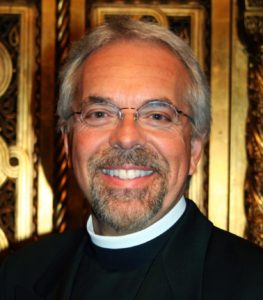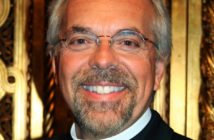
Fr Frank Marangos
Source: Oinos Educational Consulting
by Frank Marangos, D.Min., Ed.D., FCEP
Harold Lindsell
According to Merriam-Webster, “deep state” was among the 533 new words added to its lexicon in 2019. Becoming part of the American vocabulary just weeks after the inauguration of President Donald Trump, the phrase is generally recognized as the moniker of an alleged secret network of internal adversaries working clandestinely within Washington. In fact, when asked by a 2018 Monmouth University survey, three-quarters of respondents agreed that such a group of “unelected government and military officials whose influence is secretly manipulating national policy,” actually exists.
The notion of a “deep state” is not new, but the subject of interest among political scholars for many decades. In his book, Deep Politics and the Death of JFK (1993), former diplomat Peter Dale Scott examined the Kennedy assassination in a light of governmental conspiracies. In 2007, Scott published a similar volume, The Road to 9/11: Wealth, Empire and the Future of America, in which the term “deep state” was used for the first time. In 2014, University Professor Michael Glennon proffered the complementary phrase “double government” in analyzing the lingering “deep state” national security institutions that spanned the Bush and Obama administrations.
Whether scholars will continue to debate the existence/influence of a political “deep state” remains to be seen. What is certain, however, is that the term’s populist evolution simultaneously invites the possibility of an alternate remedial influence such as “deep faith.” Far from being a subversive authority, “deep faith” might be understood as the “inner voice” of one’s soul that inspires, influences, and guides.
According to the 17th-century philosopher and physicist, Blaise Pascal, there is a “God-shaped vacuum” in humanity’s heart that cannot be filled by any created thing. Since nature abhors a vacuum, Pascal warns that without faith, subversive forces can rush in to fill these empty “spaces.” As a result, the lives of the unsuspecting are frequently undermined by deep-seated forces that can adversely overwhelm them.
The 20th verse of the 20th chapter of the 2nd Old Testament Book of Chronicles has much to say to humanity’s God-shaped, inner space. In fact, the Chapter memorializes the powerful “deep faith” influence of a young king who, despite an initial reaction of “deep state” concerns at the approach of three overwhelming enemies, alternatively placed his confidence in God.
The 20th chapter describes how King Jehoshaphat surmounted the apocalyptic challenge facing his nation by: (1) praising God as the all-powerful ruler (2 Chronicles 20:6), and (2) recalling God’s past salvific actions (2 Chronicles 20:7-9). Based on his “deep faith” in God’s attributes and previous provisions, Jehoshaphat consigned his ultimate trust in divine protection and not on the council of political advisors or strength of his military. “Have faith in the Lord your God,” cried the King, “and you will be upheld. Believe his prophets, and you will succeed” (2 Chronicles 20:20)!
A distinctive thread running throughout Scripture is the belief that humility is a vital element of strength. The Bible is replete with stories of simple leaders whose “deep faith” magnified God’s strength above their personal limitations and trials. Faith made them valiant, victorious, indomitable, spirited, resilient, and victorious! The story of Jehoshaphat (2 Chron. 20:1-30) is a sterling example of such prayerful confidence in God. Rather than mobilizing his emissaries, generals, and armaments, the wise King turned the attention of his entire Kingdom to prayer and prophetic counsel . . . Word and Worship. Rather than trusting in his own prowess and wisdom, Jehoshaphat resisted the temptation to panic and/or rely on himself, publicly admitted his lack of strength, and humbly called upon God to provide the clarity of 20:20 vision.
Jehoshaphat is described as a king who “always sought the God of his fathers” (2 Chron. 20:4). His prayer was, therefore. steeped in the Scriptural delineation of God’s attributes, actions, and promises. As a result of his public recognition of God’s faithfulness, the assembly received an encouraging message from the prophet Jahaziel who assured his listeners that “God would undertake the battle for them” (2 Chron. 20:14-17). Based on Jehoshaphat’s prayer and the prophet’s word, the entire nation marched out to the battlefield the following morning, led by a choir. Standing on the edge of the valley, the people of Israel sang praises and watched in astonishment as the enemy armies of the Ammonites, Moabites, Edomites, originally arrayed against them, miraculously turned against each other. According to the writer of II Chronicles, when the fighting ended, all three armies lay dead in the valley below. Jehoshaphat’s legions “needed three days to collect the spoils” (2 Chron. 20:25).
King Jehoshaphat’s “deep faith” provides a valuable pattern for leaders and educators of the nation’s theological schools and seminaries. Apart from advancing the most appropriate best-practice interventions to counteract administrative challenges, “deep faith” must simultaneously be employed as a formative and pedagogical imperative. “Feed your faith,” an anonymous writer once suggested, “and starve your fears.” The critical questions that the nation’s institutions of higher theological education should, therefore, ponder as they enter the 2nd decade of the 21st century is: “What are we feeding ourselves and the faith of the nation’s future religious leaders? Are we concerned with helping them learn to navigate the complex “deep state” environments of their future assignments, or like Jehoshaphat, seek to both develop as well as increase the vigor of their “deep faith” spiritual propensity?”
in 1951 Harold Lindsell, Christian author, scholar, and one of the founding members of Fuller Theological Seminary made an astute observation. He recognized that “theological seminaries determine the destinies of churches. As goes the seminary so goes the church.” He understood that as the primary groomers of the nation’s faith-filled leaders, theological schools and seminaries are fundamental sponsors of society’s spiritual health.
It is, consequently, imperative that the nation’s institutions of higher theological education honor their primary mission, which, according to Gary Parrett, a professor at Gordon-Conwell Seminary, entails “the coming alongside of another, in the power of the Holy Spirit and in the company of the faithful, to seek an encounter together with the Truth; taking aim to perceive it more clearly (perception), consider it more critically (cognition), embrace it more passionately (affection), obey it more faithfully (behavior), and embody it with greater integrity.” The mission of theological education is, therefore, less about passing on a static collection of religious knowledge, as it is about nurturing a healthy relationship with God. Understood in such a fashion, together with fostering liturgical, theological, administrative, and pastoral expertise, the nation’s future religious leaders should, like King Jehoshaphat, be also inspired to cultivate a “deep” reservoir of faith.
In 2014, the World Economic Forum’s Global Agenda Council published a report entitled, Does Faith Matter? Examining the ways in which spirituality impacts society, the study identified five areas where faith can make a difference: (1) human rights, (2) peacemaking and conflict prevention, (3) values, (4) anti-corruption, and (5) business ethics. Unfortunately, a study conducted by Tufts University entitled, Preachers Who Are Not Believers, suggests that seminaries and theological schools have not positively influenced these faith-based areas. On the contrary, the study concluded that many schools actually contribute to the nation’s dwindling levels of faith by graduating “unbelieving clergy.” The report very pointedly claims a connection between the growing number of the nation’s “unchurched” with religious leaders whose “faithlessness was created during their seminary education.”
In their book, For the Life of the World: Theology that Makes a Difference (2019), Miroslav Volf and Matthew Croasmun provide an assessment of the current state of theological education in America. Like the Tufts University study, the authors, lament the fact that “western academic theology has lost its way,” because “theologians have lost theological eros, the sense of divine calling to grapple with the ultimate question of human existence and of the world’s destiny.” Quoting from Stanley Hauerwas’ 2004 celebrated address delivered at the Centennial Anniversary of Bethany Theological Seminary, Volf and Crasmun warn that “churches in America are in trouble because seminaries are in trouble.”
In a 2017 Faith and Leadership magazine interview concerning the current state of theological education in America, Frank Yamada, Executive Director of the Association of Theological Schools (ATS), boldly states that contemporary seminaries “are in need of conversion—a transformation from obsolescence to relevance.” Yamada’s criticism takes on new weight when he simultaneously insists that “seminary-trained leaders hold the promise of bringing sanity into a world where many, view religion as insane. If our theological education is at all in preparation for service in the church and the world,” Yamada continues, “it can never be reduced to mere data transfer . . . but aimed at forming the kind of people who are disciplined into the humility requisite to pray, speak wisely about God, love God, and love others for the glory of God in service to the church and the world.”
In his book, Deep Faith: Developing Faith That Releases the Power of God (2017) Rob Reimer, President of Steinbach Bible College, challenges institutions of theological learning to help students develop “deep faith that is not static but dynamic . . . that has the power to silence the voices of doubt, fear and discouragement, and can help tune a religious leader’s inner ear to the voice of God.” As such, like Yamada, the author insists, schools “must take an intentional path toward developing such faith in their students if they want to see the works of the Kingdom in greater measure.”
Like Parrett, Reimer proposes a “dialogical process” that theological schools and seminaries can employ to train and equip pastors and leaders in the work of personal and corporate renewal. While not an exhaustive list, Reimer emphasizes three characteristics of such deep faith: (1) spending time seeking/praying to God, (2) remaining faithful members/participants of a faith-based community, and (3) immersing oneself in scripture.
Reimer’s methodology pairs well with the leadership posture of King Jehoshaphat. In fact, the author’s recommendations support much of Holy Scripture’s descriptions of faith which, according to Jesus Himself, may be compared to a mustard seed that requires care and nourishment (Matthew 17:20). “Faith,” insists Saint Paul, “comes from hearing, and hearing through the word of Christ” (Romans 10:17). As faith “does not rest in the wisdom of men but in the power of God” (1 Corinthians 2:5), worship and the familiarity of the Holy Scriptures should, consequently, be at the center of theological education. As such, theological education should stress learning, believing, listening, and responding to the wisdom of Holy Scripture, which is frequently embedded in prayer and worship.
The 4th Century Church Hierarch Saint John Chrysostom had much to say about Scripture’s value for developing faith. Speaking to the religious leaders of his time, Chrysostom exhorted the prudent “to unfurl the sails of faith and to sail in them.” In order to do so, he insisted, “the Word of God should become our navigator.” The 20th verse of the 20th Chapter of 2nd Chronicles is a sterling example of the value of such Scripture-based “navigation.” Chrysostom’s exhortation is as precious now as it was during his own pastoral tenure. Theological schools and seminaries would do well to heed his dispatch and engage faculty and staff that are committed to the exhilarating challenge of moving their students beyond the technical exegesis of ancient texts to the application of their wisdom to the complex and ever-changing societal contexts.
Like Chrysostom, Mark Gornik, director of City Seminary of New York, characterizes the “truly God-bearing . . . prophetic church” as one that “incarnates itself within the community and becomes one with its neighbors in the struggle.” In his book, To Live in Peace: Biblical Prophecy and the Changing Inner City (2002), Gornik insists that faith-based leaders should be contemporary prophets, prepared spiritually for imprisonment, threats, deprivation, fear, and for the constraints that those things place on the moral imagination.” They must be prepared to meet the despair of those who starve in the shadows of economic power,” insists Gornik, “for those who stumble traumatized and destitute through landscapes of tribal conflict and international war, and then speak a prophetic word out of that pathos, staying present to brokenness.”
In his keynote address at the 2015 Prophetic Voices Conference, Meeting the Theological Challenges of the New Century, Luke Timothy Johnson underscored the suggestions of Yamada and Gornick by proposing that, apart from catechesis, theological education can correspondingly be thought of “as a form of prophecy, which, according to the Professor of Theology at Candler Seminary, does not mean the ability to predict the future, but “as discerning in the complex circumstances of everyday life a Word from God, and speaking that Word to a world that most desperately needs to hear it.”
The “Valley of Jehoshaphat” is the name given by the Prophet Joel to the geographical basin in which the enemies of Israel (Joel 3:2) were overthrown by God. In fact, Joel further identifies the “Valley of Jehoshaphat” as the location of humanity’s final apocalyptic conflict (Joel 3:12). The practical value of the prophecy is to encourage leaders of every age to live faithfully in the face of opposition and struggle, confident in the attributes, actions, and promises of God.
The nation’s institutions of higher theological education face their respective “Valleys of Jehoshaphat” as their schools enter the 20th decade of the Third Millennium. Guarding against the dangerous down-drafts of fundamentalism, pragmatism, and social activism the nation’s theological schools and seminaries should emphasize the daunting task of discerning and faithfully responding to God’s Will. Scripture insists that faith is ultimately a gift of God, “so that we cannot boast” (Eph. 2:8-9). As “faith without works is dead,” however, it is not based on a “let go – let God” Pollyannaish posture, but always includes a life of serious reflection, worship, and joyful obedience to His Word. While not neglecting other dimensions of academic and pastoral theology, institutions of higher theological education must simultaneously advance pedagogies of prophetic engagement.
Understood in this fashion, the 20th verse of the 20th chapter of 2 Chronicles provides a much-needed 20:20 vision to the nation’s theological schools and seminaries as they enter the 20th year of the 21st Millennium. Now more than ever, society requires leaders with “deep faith.” Leaders who can provide a moral, ethical, and spiritual vision to a world that is increasingly influenced by deep-seated subversive forces that have crept into humanity’s “God-shaped spaces.” The world needs the institutions of higher theological education to form “deep faith” leaders capable of effectively tackling a varied set of “deep state” challenges. One could say that that the theological school will be the locale, the contemporary Valley of Jehoshaphat, where the cosmic mêlée between “deep faith” and “deep state” will finally be waged!


